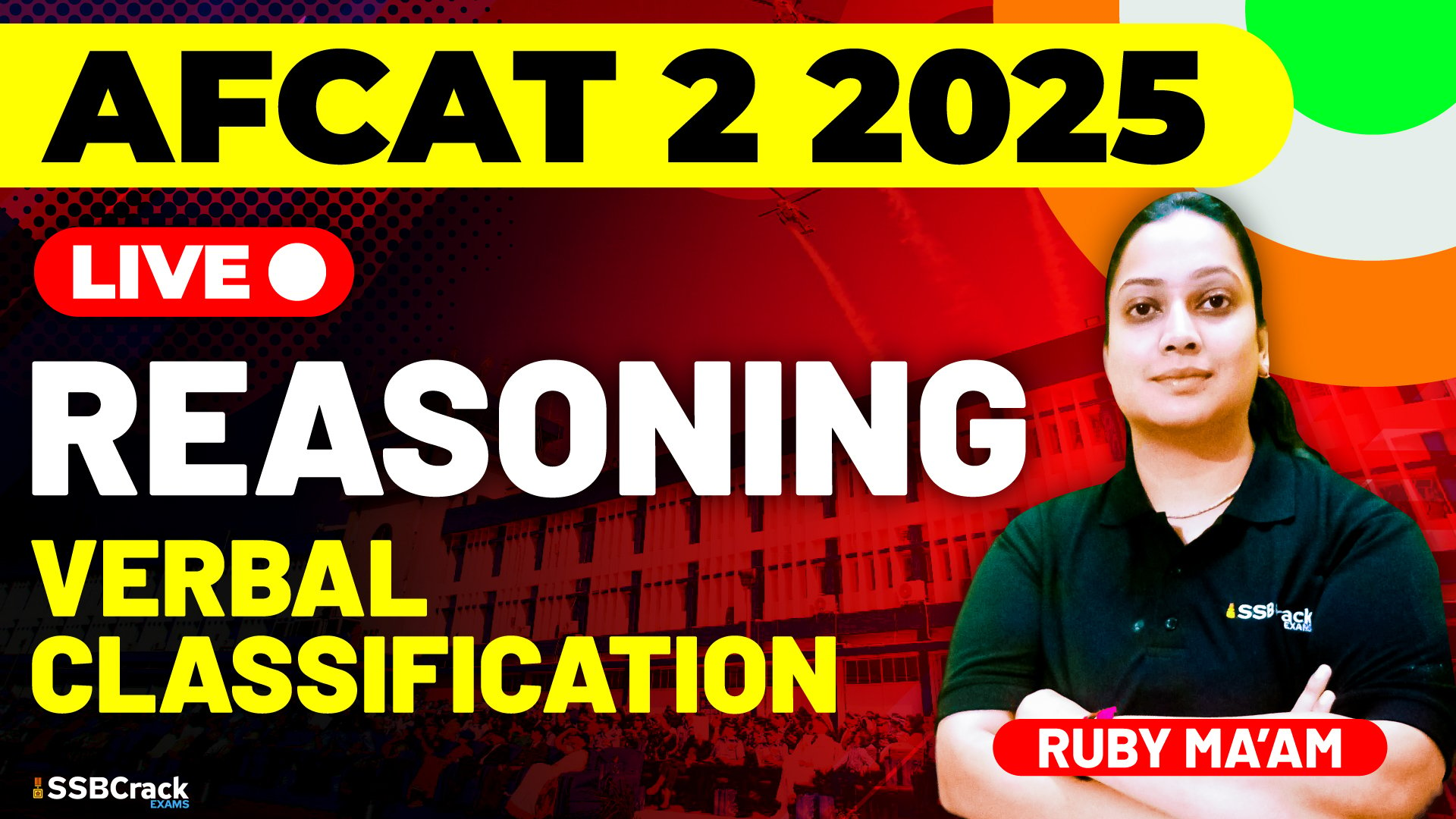Air Force Common Admission Test (AFCAT) is one of the most prestigious and competitive exams for candidates aspiring to join the Indian Air Force as commissioned officers. To clear the AFCAT exam, one must have a strong grasp over various sections, including General Awareness, Numerical Ability, Military Aptitude, and Verbal Ability in English. Among these, a crucial and often underestimated topic is Verbal Classification.
What is Verbal Classification?
Verbal Classification is a type of logical reasoning that involves grouping words based on a common characteristic or trait. It tests a candidate’s ability to identify relationships, patterns, and logical connections between words. Typically, you are presented with a set of words and asked to pick the one that does not belong to the group or to identify the common link among them.
Why is Verbal Classification Important in AFCAT?
- Tests Logical Thinking:
This section assesses your reasoning ability and how well you can spot patterns. Logical thinking is a vital skill for officers, especially in decision-making under pressure. - Time-Saving Scoring Opportunity:
Verbal classification questions are relatively quick to answer if you understand the concept. This gives you the opportunity to earn easy marks in less time, boosting your overall score. - Part of Officer-Like Qualities (OLQs):
The Indian Air Force looks for individuals with clear thinking, reasoning abilities, and a sharp mind. Verbal classification directly evaluates these core officer-like qualities. - Improves Verbal Intelligence:
AFCAT includes sections that test both verbal and non-verbal intelligence. Mastering verbal classification enhances your cognitive abilities and improves performance in the overall verbal reasoning section. - Foundation for Other Questions:
Developing skill in classification can aid in solving analogies, coding-decoding, and series questions — all of which share similar logical thinking patterns.
How to Prepare for Verbal Classification?
- Understand Common Categories: Focus on types like professions, tools, animals, countries, and languages.
- Practice Regularly: Solve different patterns daily to get used to the types of relationships.
- Learn Vocabulary: A good vocabulary helps you understand subtle differences between words.
- Analyze Your Mistakes: Review wrong answers to understand why a word didn’t fit the classification.
Final Thoughts
Verbal Classification may seem simple at first glance, but its significance in the AFCAT exam is considerable. It tests not just your vocabulary but your logical reasoning and decision-making — all essential for an officer in the Indian Air Force. By mastering this topic, you take a step closer to your dream of serving the nation in uniform.
Stay consistent, keep practicing, and aim high — the sky is not the limit, it’s your starting point.







